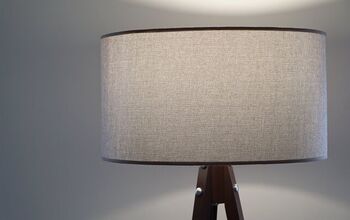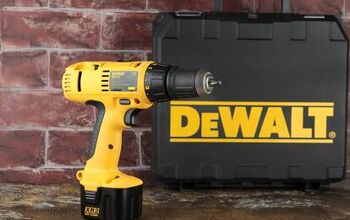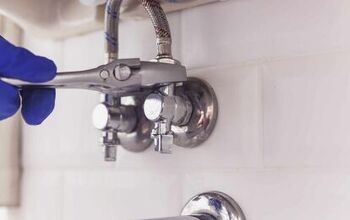Termite Spot Treatment Vs. Tenting: Which Is The Better Treatment?

Termites can be a death sentence to homeowners. Finding out that you have termites is challenging enough, but now you have to choose how to get rid of them. Thankfully there are many ways to combat these little burrowing monsters, like termite spot treatment vs. tenting.
Regarding termite spot treatment vs. tenting, tenting is the best way to rid your home of termites entirely. However, spot treatment is also very effective and much more budget-friendly. The choice is entirely up to the individual and what their needs are — peace of mind or budget.
Thankfully, neither option is bad, and you shouldn’t write off spot treatment simply because it’s not an all-encompassing treatment. With the current cost of living, sometimes spot treatment is the only option that families can afford.
Do You Need Pest Control Services?
Get free, zero-commitment quotes from pro contractors near you.

An Introduction To Termites And Fumigation
Termites are fascinating creatures, even if they are unwelcome in the home. Termites have a longer lifespan than most insects, typically living between 1 to 2 years. A developed nest can take 2 to 4 years to reach full maturity, but the nests can expand exponentially once they’re established.
Termites are burrowing insects which makes them particularly difficult to identify. In addition to their vast nest size, this quality can cause sizable damage unknowingly to the homeowner.
Termite tenting is the process of killing termites by encasing your home in a tent and filling it with a poisonous gas. This method kills not only termites but also any other pests that may be infesting your home.
Termite spot treatment is when holes are drilled into the suspected termite activity area and injected with a poison. This method can be just as effective as tenting, but only if done thoroughly.
Termite Spot Treatment vs. Tenting: Complete Removal
Tenting for termite treatment is almost a guarantee that you’ll eradicate all pests in the home, termites especially. Even for minor damage, many people choose this option for the peace of mind that their home is pest-free.
Spot removal, though potentially effective, has a much higher risk factor for failing at total termite removal. Nest recovery is a significant risk since a queen can live for 25 years and lay 2,000 eggs a day.
Winner: Tenting. When it comes to complete removal, tenting will always be your best bet. Since termites are challenging to identify, tenting can remove nests that you may not have even known were there.
Termite Spot Treatment vs. Tenting: Cost
Between the cost of fumigation and damage repairs, termites are one of the hardest and most costly pests to remove. Spot treatment is much more affordable and can even be done by the homeowner, eliminating the cost of a professional.
On the other hand, tenting is incredibly expensive, ranging from $1 to $4 per square foot. Many homeowners aren’t able to afford this cost, especially when paired with the cost of repairs.
Winner: Spot Treatment. As far as money is concerned, spot treatment is certainly the most affordable option. This option also allows you to forgo professional help, making spot treatment even more affordable.
Termite Spot Treatment vs. Tenting: Time
With spot treatment, you can live in your home during the fumigation process. This is a much more convenient option than tenting that can save you both time and money.
Tenting is a very lengthy process taking up to two weeks before it is safe to return. The added cost and stress of alternative housing during the fumigation process are major factors in the decision.
Winner: Spot Treatment. There is no denying that spot treatment is the winner in this category. The stress of fumigation is challenging enough, much less having to leave your home and pay for alternate housing.
Termite Spot Treatment vs. Tenting: Health Concerns
Spot treatment can be very dangerous, especially if you are administering it without previous experience. If you follow the directions for spot treatment, there should be little to no risk of any health concerns. Treating the inside of your home does require extra care to ensure a safe and healthy environment.
If executed correctly, tenting is an incredibly safe practice. After fumigation, it takes between 24 to 72 hours before it is safe to return. As long as you wait the designated time to return, there should be no residual health concerns.
Winner: Tenting. While both methods generally don’t affect health, tenting is the winner because professionals typically administer it. Neither spot treatment nor tenting typically have health concerns; the DIY ability of spot treatment makes it more precarious.
Termite Spot Treatment vs. Tenting: Likelihood Of Reinfestation
Homeowners typically use a spot treatment for single-origin nests. This method is very effective, but only if you reach all of the nests. Termites are tricky, and if you fail to treat all nests, your infestation will only continue.
One of the greatest benefits of tenting is the peace of mind knowing that your home is completely pest-free. Reinfestation is very unlikely if you use tented fumigation.
However, it is not unheard of for reinfestation to occur. Using a reliable and vetted professional can help you avoid any potential re-infestations.
Winner: Tenting. Tenting is definitely the best choice when it comes to protecting against re-infestations. The thoroughness of tenting is undoubtedly worth the price tag if avoiding re-infestations is a priority for you.
Termite Spot Treatment vs. Tenting: Residue
The residue left over from the chemicals used for fumigation can be both a health concern and a pain to clean. With spot treatment, the chemicals used are typically a liquid form and, if applied incorrectly, can leave a dangerous residue.
Because tenting uses a gaseous poison, there is no issue with residue after the treatment. Once the airing out period concludes, your home is ready for your return, no cleaning necessary.
Winner: Tenting. Even though both are potentially safe, tenting fumigation is safer when it comes to residue than spot treatment fumigation.
Related Questions
What is the ideal termite environment?
Dark, warm, undisturbed, and moist spots are the most likely to have termite damage. Areas like crawl spaces, basements, and foundations are common examples of where termites like to hang out. It is important to check these areas annually to avoid any major structural issues that may arise from termite damage.Decreasing the amount of moisture in an area can deter termites from nesting in your home. Once a termite has nested, fumigation is the only treatment. Moisture reduction is only a method for prevention, not treatment. If you’re overly concerned about termites, you might want to consider a termite protection plan.
Does your landlord legally have to treat termites?
Pests are a tricky subject when it comes to rental properties. While some pests, roaches, mice, bed bugs are frequently the renter’s fault, termites are not tenant-caused. In most cases, the landlord will be responsible for any fees associated with termites.If your landlord is refusing to treat termites, there are several things that you can do to address the issue. While each state has different laws surrounding rental properties, typically for lease termination, you must prove uninhabitable conditions. There are several options for early lease termination, but you should research each thoroughly according to your state’s laws. Contacting a lawyer to review your case is a more extreme option but could be helpful for severe cases. Withholding rent until your landlord addresses the issue or putting your rent in escrow are also common options.
Do You Need Pest Control Services?
Get free, zero-commitment quotes from pro contractors near you.

Our Final Take
At the end of the day, choosing your fumigation method depends on your needs. Both treatments have the potential to rid your home of termites completely. However, there are caveats to both approaches.
If you have the budget to afford tenting, the benefits far outweigh spot treatment. The thoroughness and preventative nature of tenting are its greatest strengths making it a worthy investment for the homeowner.
If budget is the most important factor for fumigation, spot treatment will be your best bet. Depending on how severe the problem is, budgeting for multiple spot treatments may be wise.

Stacy Randall is a wife, mother, and freelance writer from NOLA that has always had a love for DIY projects, home organization, and making spaces beautiful. Together with her husband, she has been spending the last several years lovingly renovating her grandparent's former home, making it their own and learning a lot about life along the way.
More by Stacy Randall



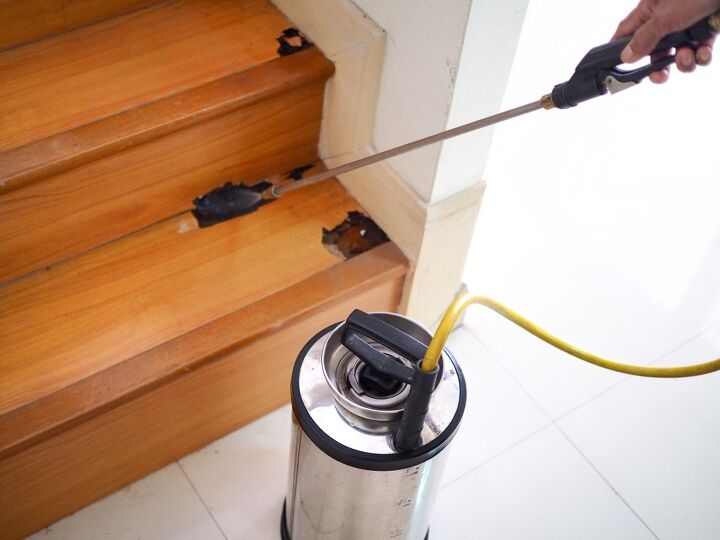
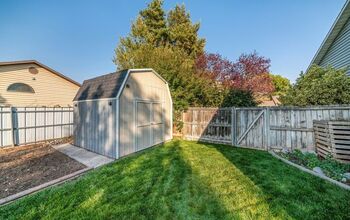





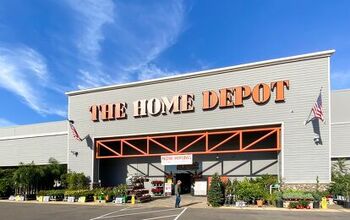
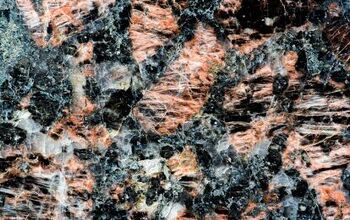
![10 Best Scroll Saws for 2022 [Ultimate Reviews & Buyer's Guide]](https://cdn-fastly.upgradedhome.com/media/2023/07/31/9070684/10-best-scroll-saws-for-2022-ultimate-reviews-buyer-s-guide.jpg?size=350x220)

![10 Best Electric Pressure Washers – [2022 Reviews & Guide]](https://cdn-fastly.upgradedhome.com/media/2023/07/31/9070600/10-best-electric-pressure-washers-2022-reviews-guide.jpg?size=350x220)
